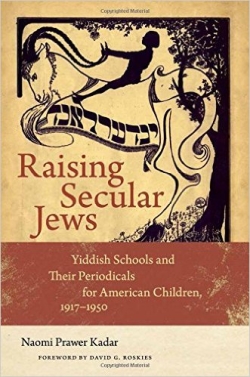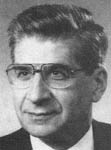More than two million Jews from Eastern Europe arrived in the United States between 1880 and 1924, the majority of them secular. One of the great challenges faced by these immigrants was how to help their children adjust to life in a new land while preserving and transmitting their language, Yiddish culture, and the progressive values that drove them to organize labor unions and fight injustice.
To send their children to Hebrew school would be to indoctrinate them in what they considered outdated and reactionary religious teachings. To send them to public school and not provide them with a Jewish education would help their children adjust to America, but also would create a wall between the two generations. So not to deprive their children of the ideals that meant the most to them, they established Yiddish speaking afternoon schools and a few Yiddish speaking summer camps.
Raising Secular Jews: Yiddish Schools and Their Periodicals for American Children, 1917–1950, adapted from Naomi Prawer Kadar’s Ph.D. dissertation at Columbia, focuses on the children’s magazines created by these Yiddish speaking schools between 1917 and the 1950s – an effort eventually bound to fail because Yiddish could not stand up against the dominance of American culture. Nor could they compete with the attractions of the Zionist movement, with its stress on Hebrew, or the Jewish religious movements, which fit better into the American culture. Today, the grandchildren of the Yiddishists are affiliated – if at all – with synagogues and not with Yiddish speaking organizations. Still, this story of how the Jewish immigrants who arrived on these shores a century ago fought for the preservation of their identity and for a better world is worth telling.
Jews are a fractious people, and so, if there was one network of Yiddish schools, there had to be four variations – the Labor Zionist Farband, the Sholem Aleichem schools, the socialist Workmen’s Circle, and the Ordn schools of the International Workers Order. Each of these movements stood for social justice, but with a different understanding of what that meant to their members. Insight into their differences is evident in the textbooks and magazines they created, as well as how they sought to capture children’s imaginations in preparing them to participate in Yiddish culture and American culture at the same time.
Much credit goes to Dr. Kadar, who took on the daunting task of tracking down these faded and worn magazines in the archives of the New York Public Library, YIVO Center in New York City, the Weidner Library at Harvard, and Hebrew Union College-Jewish Institute of Religion in Cincinnati.
In her carefully documented histories of each of the four school systems and their sponsoring movements, Kadar explains their respective educational objectives and approaches. She shows how each school system, for example, treated those Jewish holidays that they could still observe from their secular points of view: Hanukkah, Purim and Pesach – yes, Rosh Hashanah and Yom Kippur -- no.
The book ends with a chart that says it all. Before 1912, 14 Yiddish children’s books were published in the United States; by the 1930s, the number had climbed to 170. In the mid-1950s, only 10 were published.
And so ended the dream.
Today, the central threat to Jewish identity is not the division over ideologies, but widespread indifference to all our ideologies. The debate over the goal of one state or two states in Israel, the controversy over the Iran treaty, and the recent presidential elections each aroused some passion within American Jewry, but most American Jews have remained indifferent to all ideological disputes. And as Elie Wiesel pointed out so many times, indifference is a greater threat to the Jewish future than is any ideology.
Reading this book reconnects us with a time when secular Jews cared passionately and argued furiously over ideas and ideals. This is the real legacy that this group left behind, and there is much our generation can learn and emulate from it.
The full version of this review first appeared in the Boston Jewish Advocate.
Rabbi Jack Riemer, a prolific writer and editor is, among others, a co-editor of Ethical Wills and How to Prepare Them: A Guide to Sharing Your Values from Generation to Generation (Jewish Lights) and author of the forthcoming book, The Day I Met Father Isaac at the Supermarket (Ktav).
Give to the URJ
The Union for Reform Judaism leads the largest and most diverse Jewish movement in North America.


